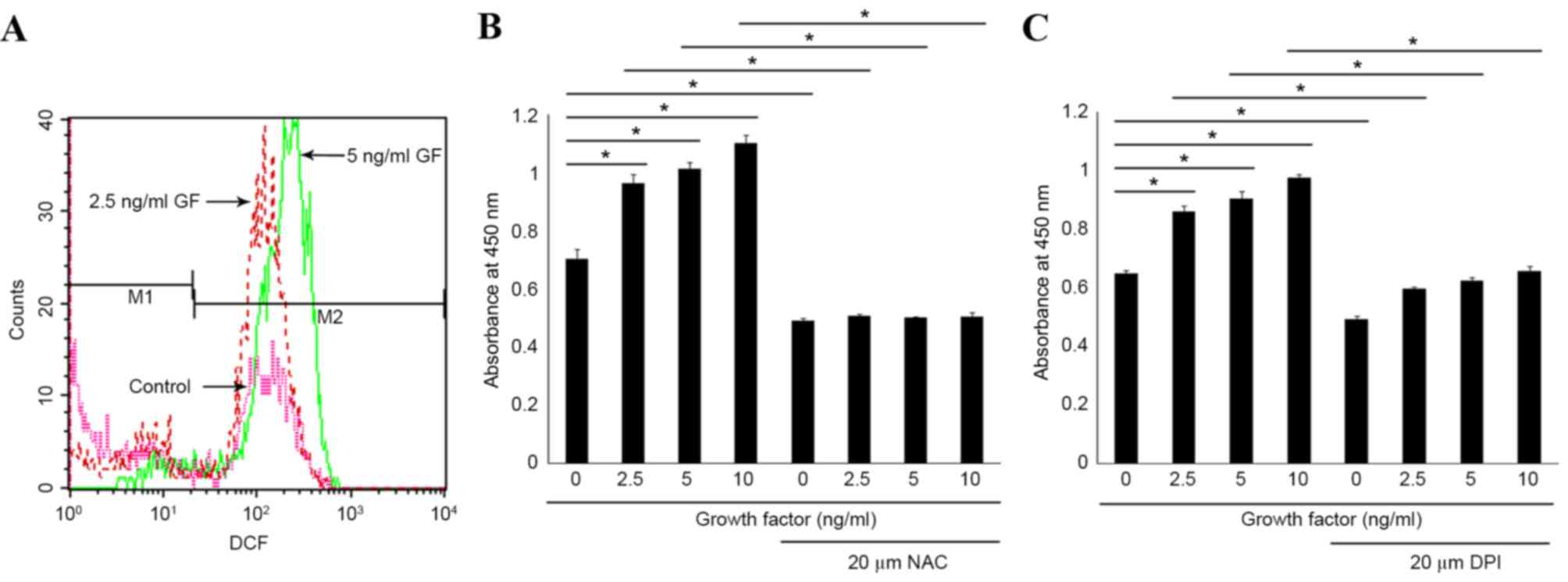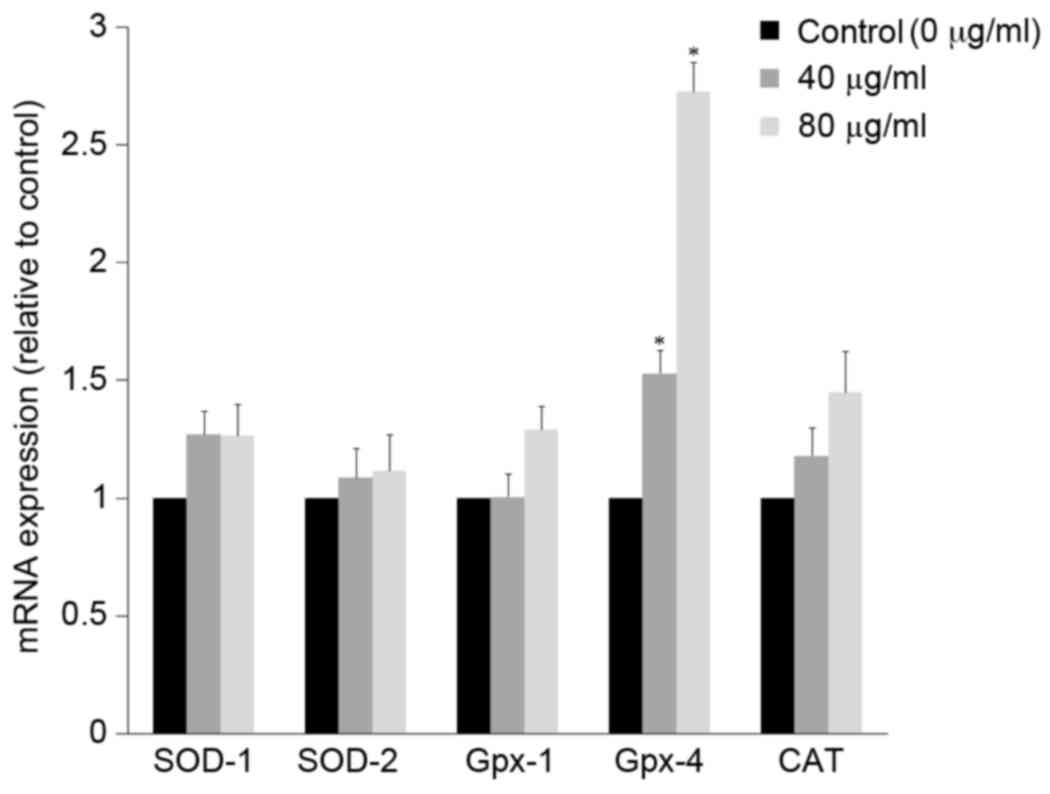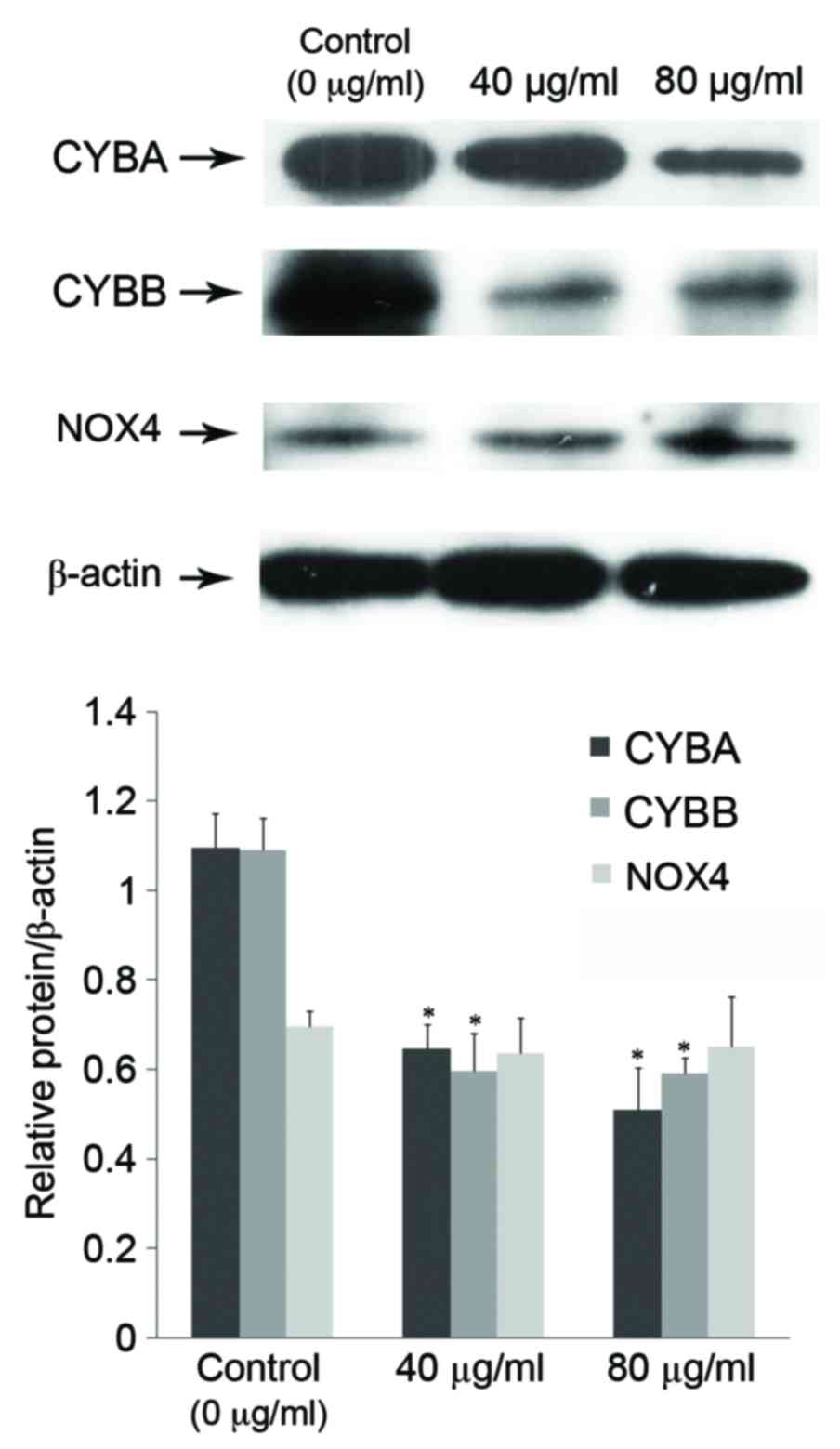|
1
|
Culleton BF, Larson MG, Wilson PW, Evans
JC, Parfrey PS and Levy D: Cardiovascular disease and mortality in
a community-based cohort with mild renal insufficiency. Kidney Int.
56:2214–2219. 1999. View Article : Google Scholar : PubMed/NCBI
|
|
2
|
Go AS, Chertow GM, Fan D, McCulloch CE and
Hsu CY: Chronic kidney disease and the risks of death,
cardiovascular events, and hospitalization. N Engl J Med.
351:1296–1305. 2004. View Article : Google Scholar : PubMed/NCBI
|
|
3
|
Sezer M, Ozcan M, Okcular I, Elitok A,
Umman S, Umman B, Tayyareci Y, Olcay A, Nisanci Y, Bilge AK and
Meric M: A potential evidence to explain the reason behind the
devastating prognosis of coronary artery disease in uraemic
patients: Renal insufficiency is associated with poor coronary
collateral vessel development. Int J Cardiol. 115:366–372. 2007.
View Article : Google Scholar : PubMed/NCBI
|
|
4
|
Brunet P, Gondouin B, Duval-Sabatier A,
Dou L, Cerini C, Dignat-George F, Jourde-Chiche N, Argiles A and
Burtey S: Does uremia cause vascular dysfunction? Kidney Blood
Press Res. 34:284–290. 2011. View Article : Google Scholar : PubMed/NCBI
|
|
5
|
Mohandas R and Segal MS: Endothelial
progenitor cells and endothelial vesicles-what is the significance
for patients with chronic kidney disease? Blood Purif. 29:158–162.
2010. View Article : Google Scholar : PubMed/NCBI
|
|
6
|
Amann K, Wanner C and Ritz E: Cross-talk
between the kidney and the cardiovascular system. J Am Soc Nephrol.
17:2112–2119. 2006. View Article : Google Scholar : PubMed/NCBI
|
|
7
|
Schiffrin EL, Lipman ML and Mann JF:
Chronic kidney disease: Effects on the cardiovascular system.
Circulation. 116:85–97. 2007. View Article : Google Scholar : PubMed/NCBI
|
|
8
|
Vanholder R, De Smet R and Lameire N:
Protein-bound uremic solutes: The forgotten toxins. Kidney Int
Suppl. 78:S266–S270. 2001. View Article : Google Scholar : PubMed/NCBI
|
|
9
|
Martinez AW, Recht NS, Hostetter TH and
Meyer TW: Removal of P-cresol sulfate by hemodialysis. J Am Soc
Nephrol. 16:3430–3436. 2005. View Article : Google Scholar : PubMed/NCBI
|
|
10
|
Ying Y, Yang K, Liu Y, Chen QJ, Shen WF,
Lu L and Zhang RY: A uremic solute, P-cresol, inhibits the
proliferation of endothelial progenitor cells via the p38 pathway.
Circ J. 75:2252–2259. 2011. View Article : Google Scholar : PubMed/NCBI
|
|
11
|
Andriamihaja M, Lan A, Beaumont M,
Audebert M, Wong X, Yamada K, Yin Y, Tomé D, Carrasco-Pozo C,
Gotteland M, et al: The deleterious metabolic and genotoxic effects
of the bacterial metabolite p-cresol on colonic epithelial cells.
Free Radic Biol Med. 85:219–227. 2015. View Article : Google Scholar : PubMed/NCBI
|
|
12
|
Chang MC, Chang HH, Chan CP, Yeung SY,
Hsien HC, Lin BR, Yeh CY, Tseng WY, Tseng SK and Jeng JH: p-Cresol
affects reactive oxygen species generation, cell cycle arrest,
cytotoxicity and inflammation/atherosclerosis-related modulators
production in endothelial cells and mononuclear cells. PLoS One.
9:e1144462014. View Article : Google Scholar : PubMed/NCBI
|
|
13
|
Ushio-Fukai M and Urao N: Novel role of
NADPH oxidase in angiogenesis and stem/progenitor cell function.
Antioxid Redox Signal. 11:2517–2533. 2009. View Article : Google Scholar : PubMed/NCBI
|
|
14
|
Chang MC, Wang TM, Yeung SY, Jeng PY, Liao
CH, Lin TY, Lin CC, Lin BR and Jeng JH: Antiplatelet effect by
p-cresol, a uremic and environmental toxicant, is related to
inhibition of reactive oxygen species, ERK/p38 signaling and
thromboxane A2 production. Atherosclerosis. 219:559–565. 2011.
View Article : Google Scholar : PubMed/NCBI
|
|
15
|
Piccoli C, D'Aprile A, Ripoli M, Scrima R,
Lecce L, Boffoli D, Tabilio A and Capitanio N: Bone-marrow derived
hematopoietic stem/progenitor cells express multiple isoforms of
NADPH oxidase and produce constitutively reactive oxygen species.
Biochem Biophys Res Commun. 353:965–972. 2007. View Article : Google Scholar : PubMed/NCBI
|
|
16
|
Livak KJ and Schmittgen TD: Analysis of
relative gene expression data using real-time quantitative PCR and
the 2(−Delta Delta C(T)) Method. Methods. 25:402–408. 2001.
View Article : Google Scholar : PubMed/NCBI
|
|
17
|
Vanholder R, De Smet R, Glorieux G,
Argilés A, Baurmeister U, Brunet P, Clark W, Cohen G, De Deyn PP,
Deppisch R, et al: Review on uremic toxins: Classification,
concentration, and interindividual variability. Kidney Int.
63:1934–1943. 2003. View Article : Google Scholar : PubMed/NCBI
|
|
18
|
Ujhelyi L, Balla G, Jeney V, Varga Z, Nagy
E, Vercellotti GM, Agarwal A, Eaton JW and Balla J: Hemodialysis
reduces inhibitory effect of plasma ultrafiltrate on LDL oxidation
and subsequent endothelial reactions. Kidney Int. 69:144–151. 2006.
View Article : Google Scholar : PubMed/NCBI
|
|
19
|
Asahara T, Murohara T, Sullivan A, Silver
M, van der Zee R, Li T, Witzenbichler B, Schatteman G and Isner JM:
Isolation of putative progenitor endothelial cells for
angiogenesis. Science. 275:964–967. 1997. View Article : Google Scholar : PubMed/NCBI
|
|
20
|
Lin Y, Weisdorf DJ, Solovey A and Hebbel
RP: Origins of circulating endothelial cells and endothelial
outgrowth from blood. J Clin Invest. 105:71–77. 2000. View Article : Google Scholar : PubMed/NCBI
|
|
21
|
Hur J, Yoon CH, Kim HS, Choi JH, Kang HJ,
Hwang KK, Oh BH, Lee MM and Park YB: Characterization of two types
of endothelial progenitor cells and their different contributions
to neovasculogenesis. Arterioscler Thromb Vasc Biol. 24:288–293.
2004. View Article : Google Scholar : PubMed/NCBI
|
|
22
|
Finkel T: Oxidant signals and oxidative
stress. Curr Opin Cell Biol. 15:247–254. 2003. View Article : Google Scholar : PubMed/NCBI
|
|
23
|
Griendling KK, Sorescu D and Ushio-Fukai
M: NAD(P)H oxidase: Role in cardiovascular biology and disease.
Circ Res. 86:494–501. 2000. View Article : Google Scholar : PubMed/NCBI
|
|
24
|
Case J, Ingram DA and Haneline LS:
Oxidative stress impairs endothelial progenitor cell function.
Antioxid Redox Signal. 10:1895–1907. 2008. View Article : Google Scholar : PubMed/NCBI
|
|
25
|
Maulik N: Redox signaling of angiogenesis.
Antioxid Redox Signal. 4:805–815. 2002. View Article : Google Scholar : PubMed/NCBI
|
|
26
|
Ushio-Fukai M: Redox signaling in
angiogenesis: Role of NADPH oxidase. Cardiovasc Res. 71:226–235.
2006. View Article : Google Scholar : PubMed/NCBI
|
|
27
|
Urao N, Inomata H, Razvi M, Kim HW, Wary
K, McKinney R, Fukai T and Ushio-Fukai M: Role of nox2-based NADPH
oxidase in bone marrow and progenitor cell function involved in
neovascularization induced by hindlimb ischemia. Circ Res.
103:212–220. 2008. View Article : Google Scholar : PubMed/NCBI
|


















